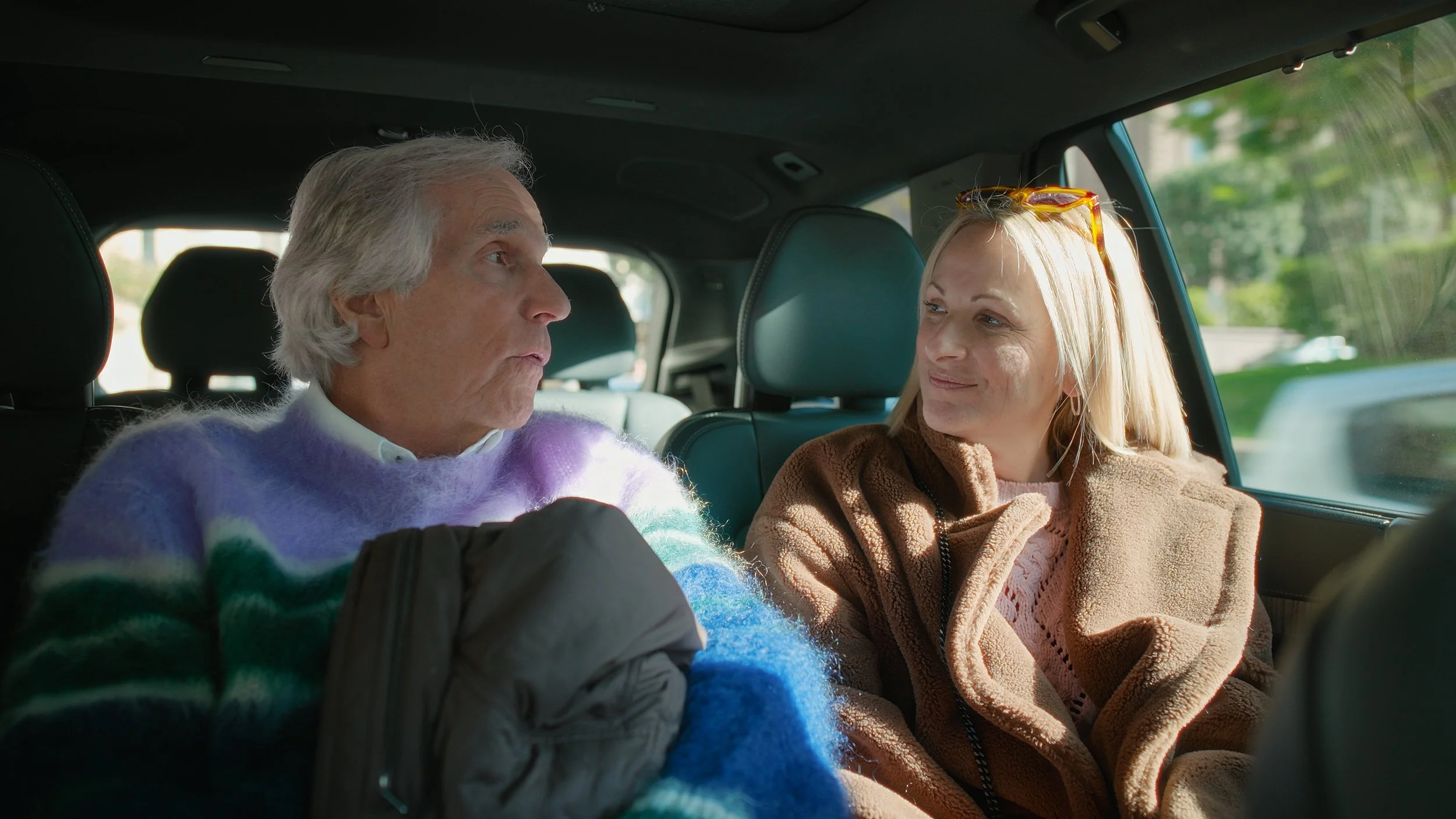Marlee Matlin: Not Alone Anymore Gives a Disability Trailblazer Her Due
By Kim Hughes
Rating: B
It is, undeniably, a valentine to its subject.
But director Shoshannah Stern’s documentary, Marlee Matlin: Not Alone Anymore — exploring the life of Matlin, now 59, and the first Deaf actor to win an Academy Award at age 21 for her role in Children of a Lesser God — is also a portrait of a genuine trailblazer who advocated tirelessly for Deaf accessibility.
Matlin with longtime friend Henry Winkler.
Matlin, Stern shows, really did open doors for other Deaf actors; she would join a cast of them in 2021’s CODA, which earned three Oscars, including for best picture. She used the platform she was afforded by her 1987 best actress win to advance the issue of closed captioning for all films and television series. Yes, there was a time when that was a radical concept. Matlin fought for it.
In one of the film’s most poignant moments — and there are several — Matlin recalls how she loved The Wizard of Oz but, until it received close captioning on its 50th anniversary, she was unaware of its precise meaning, unable as she was to access the dialogue.
Later in the film, discussing the domestic abuse she endured from Lesser God co-star and lover William Hurt, Matlin asserts that the Deaf suffer from “language deprivation.” They cannot overhear others or parse bits and bobs as hearing people do. And so, they are siloed by silence, prejudice, and well-meaning but unhelpful hearing people who just can’t bridge the gap.
Despite her noble intentions, at times it felt like Matlin just couldn’t win. In 1988 for example, when she was presenting best actor Oscar, she spoke aloud to announce Michael Douglas as winner for Wall Street. The criticism from the Deaf community — that she was kowtowing to hearing people using speech over sign language — was swift and destabilizing.
Almost as destabilizing as some of the ridiculous questions she was asked by clueless media, included here. Some things never change.
Heartrending bombshells like those propel Stern’s doc, which aims to strike a balance between hagiography and unobstructed view of a unique and complex woman’s life. Stern, who is also Deaf and an actor — and thus, particularly dialled into Matlin’s experience — conducts her interviews with Matlin using sign language, which gives the film a particular intimacy.
That’s because, as Matlin explains in an interview with Original-Cin, it was just the two of them. There was no third person, an interpreter, involved, as was typically the case. Matlin’s thoughts are direct and not filtered through someone else.
Within the doc, there are also spoken interviews with Matlin’s brothers, Aaron Sorkin, Happy Days actor Henry Winkler — who played an outsized role in her personal life as mentor and friend — and perhaps most fascinatingly, with her longtime interpreter Jack Jason, who provides the documentary with decades of fly-on-the-wall recollections and observations about the star’s ups and downs.
Home footage offers a window into Matlin’s loving if challenging childhood in Chicago, and she is forthcoming about the darker sides of her life, notably drug use and the beforementioned domestic violence from the late Hurt, which she chronicled in a bombshell 2010 memoir, I’ll Scream Later.
Given that Matlin was 19 to Hurt’s 35 when they met and began dating on the set of Lesser God, it’s easy to see how she felt marginalized and misunderstood. What comes through most powerfully in Marlee Matlin: Not Alone Anymore is best captured in the film’s title.
Her sterling work as an actor and activist helped reframe society’s view of Deaf people specifically and disabled people broadly while illustrating unequivocally that Deaf people can be as brilliant, funny, weird, or fumbling as anybody else. In other words, they belong. It’s hard to imagine a more profound legacy than that.
Marlee Matlin: Not Alone Anymore. Directed by Shoshannah Stern. With Marlee Matlin, Henry Winkler, Troy Kotsur and Lauren Ridloff. At Toronto's TIFF Lightbox and Vancouver’s VIFF Centre July 25, with more cities to follow.



